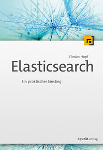While I don't believe in putting numbers on source code quality, SonarQube (formerly known as Sonar) can be a really useful tool during development. It enforces a consistent style across your team, has discovered several possible bugs for me and is a great tool to learn: You can browse the violations and see why a certain expression or code block can be a problem.
To make sure that your code base stays in a consistent state you can also go as far as mandating that there should be no violations in the code developers check in. One of the problems with this is that a lot of projects are not green field projects and you have a lot of existing code. If your violation number already is high it is difficult to judge if no new violations were introduced.
In this post I will show you how you can start with zero violations for existing code without touching the sources, something I got inspired to do by Jens Schauder in his great talk Working with Legacy Teams. We will ignore all violations based on the line in the file so if anybody touches the file the violations will show again and the developer is responsible for fixing the legacy violations.
The Switch Off Violations Plugin
We are using the Switch Off Violations Plugin for SonarQube. It can be configured with different exclusion patterns for the issues. You can define regular expressions for code blocks that should be ignored or deactivate violations at all or on a file or line basis.
For existing code you want to ignore all violations for certain files and lines. This can be done by inserting something like this in the text area Exclusion patterns:
de.fhopf.akka.actor.IndexingActor;pmd:SignatureDeclareThrowsException;[23]This will exclude the violation for throwing raw Exceptions in line 23 of the IndexingActor class. When analyzing the code again this violation will be ignored.
Retrieving violations via the API
Besides the nice dashboard SonarQube also offers an API that can be used to retrieve all the violations for a project. If you are not keen to look up all existing violations in your code base and insert those by hand you can use it to generate the exclusion patterns automatically. All of the violations can be found at /api/violations, e.g. http://localhost:9000/api/violations.
I am sure there are other ways to do it but I used jsawk to parse the JSON response (On Ubuntu you have to install Spidermonkey instead of the default js interpreter.. And you have to compile it yourself. And I had to use a specific version. Sigh.).
Once you have set up all the components you can now use jsawk to create the exclusion patterns for all existing violations:
curl -XGET 'http://localhost:9000/api/violations?depth=-1' | ./jsawk -a 'return this.join("\n")' 'return this.resource.key.split(":")[1] + ";*;[" + this.line + "]"' | sort | uniqThis will present a list that can just be pasted in the text area of the Switch Off Violations plugin or checked in to the repository as a file. With the next analysis process you will then hopefully see zero violations. When somebody changes a file by inserting a line the violations will be shown again and should be fixed. Unfortunately some violations are not line based and will yield a line number 'undefined'. Currently I just removed those manually so you still might see some violations.
Conclusion
I presented one way to reset your legacy code base to zero violations. With SonarQube 4.0 the functionality of the Switch Violations Off plugin will be available in the core so it will be easier to use. I am still looking for the best way to keep the exclusion patterns up to date. Once somebody had to fix the violations for an existing file the pattern should be removed.
Update 09.01.2014
Starting with SonarQube 4 this approach doesn't work anymore. Some features of the SwitchOffViolations plugin have been moved to the core but excluding violations by line is not possible anymore and also will not be implemented. The developers recommend to only look at the trends of the project and not the overall violation count. This can be done nicely using the differentials.
About Florian Hopf
I am working as a freelance software developer and consultant in Karlsruhe, Germany and have written a German book about Elasticsearch. If you liked this post you can follow me on Twitter or subscribe to my feed to get notified of new posts. If you think I could help you and your company and you'd like to work with me please contact me directly.








Keine Kommentare:
Kommentar veröffentlichen